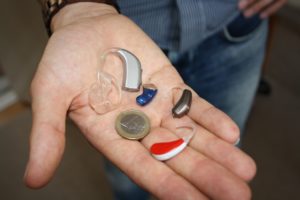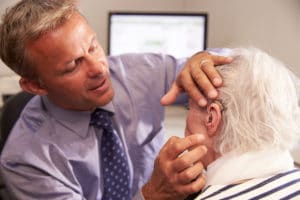Dr. Mary L. Frintner, owner and audiologist at Burbank Audiology Center, has been selected as a finalist in the 2022 Oticon Focus on People Awards, a national competition recognizing individuals who are helping to change perceptions of what it means to live with hearing loss.
You can cast Your Vote Online at Oticon.com/FOP now through Nov. 4! If she wins, Dr. Frintner will donate to the Cystic Fibrosis Foundation.
How the Contest Works
Leading hearing solutions manufacturer Oticon, Inc. created the national awards program to honor hearing impaired students, adults and advocacy volunteers who drive awareness and understanding that can change attitudes and open doors of opportunity for all people with hearing loss.
Dr. Frintner is one of three finalists in the Practitioner category, recognizing hearing care experts who share a passion for making the world a better place for people with hearing loss through their professional, volunteer, cultural and civic endeavors.
The total number of votes each finalist receives will help determine who will be the first, second and third place winners in each category.
About Dr. Frintner
In 30-plus years of practicing audiology, Dr. Frintner has strongly advocated for children who experience hearing loss. That passion extends to the care they receive in her practice, Burbank Audiology Center, and beyond – through a program she established called “Listen through Literacy.”
Many of her patients are children from low-income households. To encourage families to read to their children to develop a love of reading and build literacy, all children that come to her practice can choose a book to take home. Dr. Frintner recently fitted 10-year-old Lev and his nine-year-old sister Vlada, refugees from war-torn Ukraine, with hearing aids and provided them with books, backpacks, lunch bags and all the school supplies they need to be ready to learn.
Voting for Dr. Frintner is open now through Nov. 4 at Oticon.com/FOP. Winners will be announced in early 2023.


